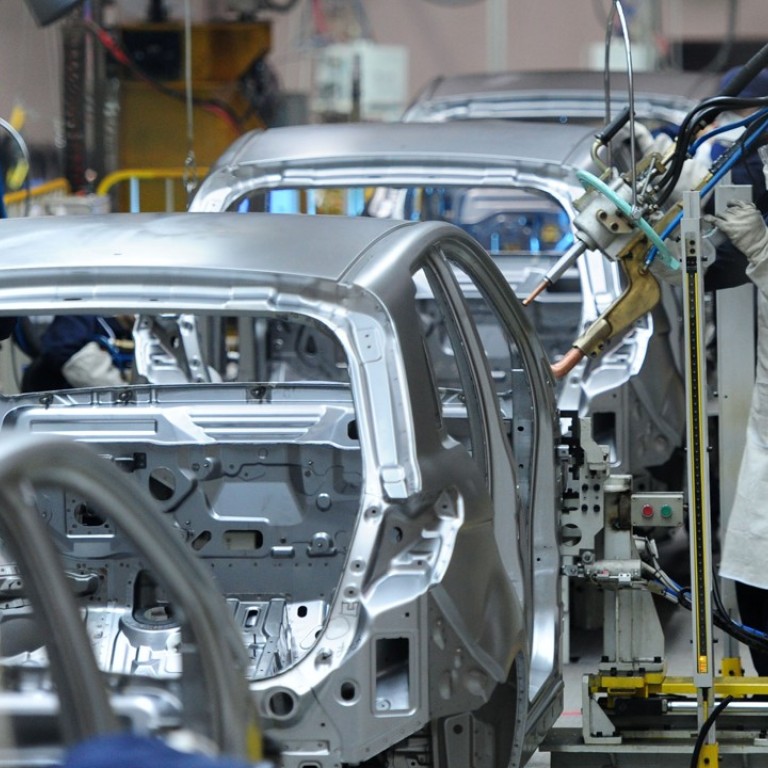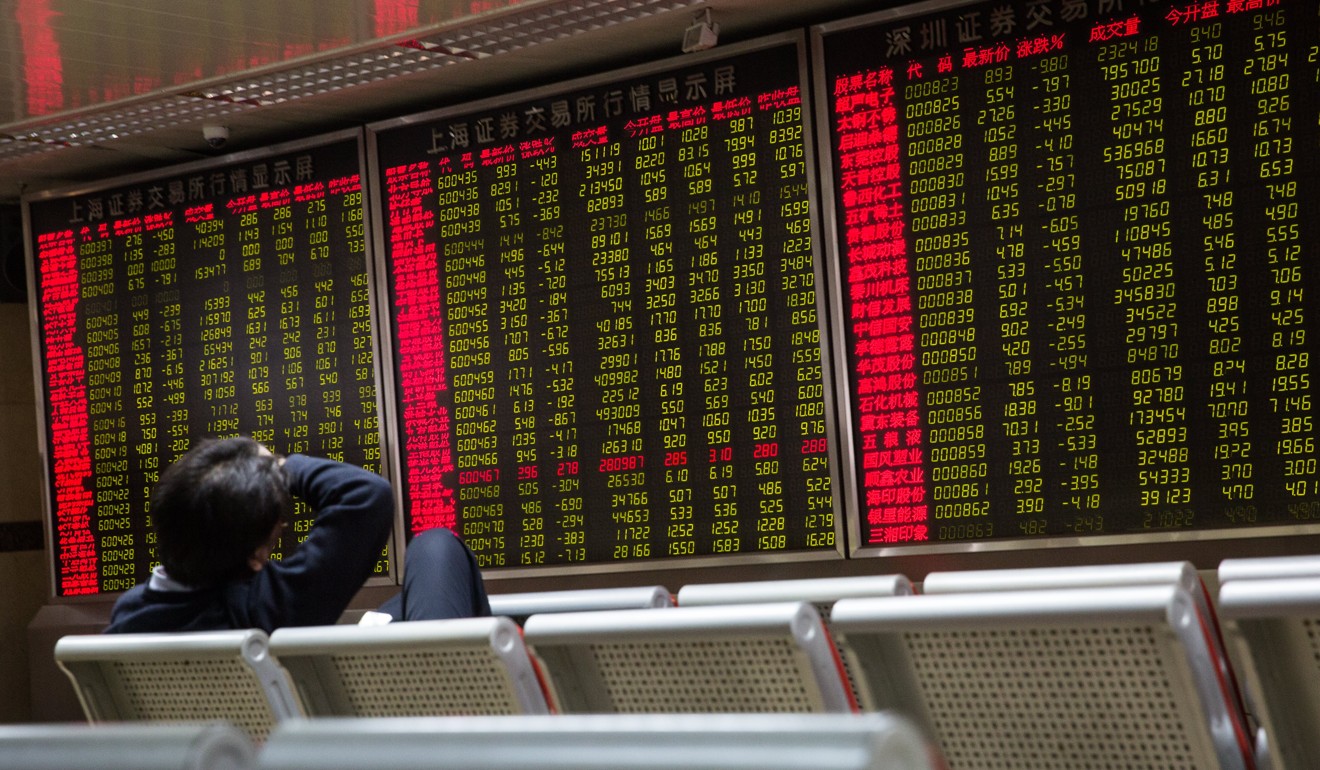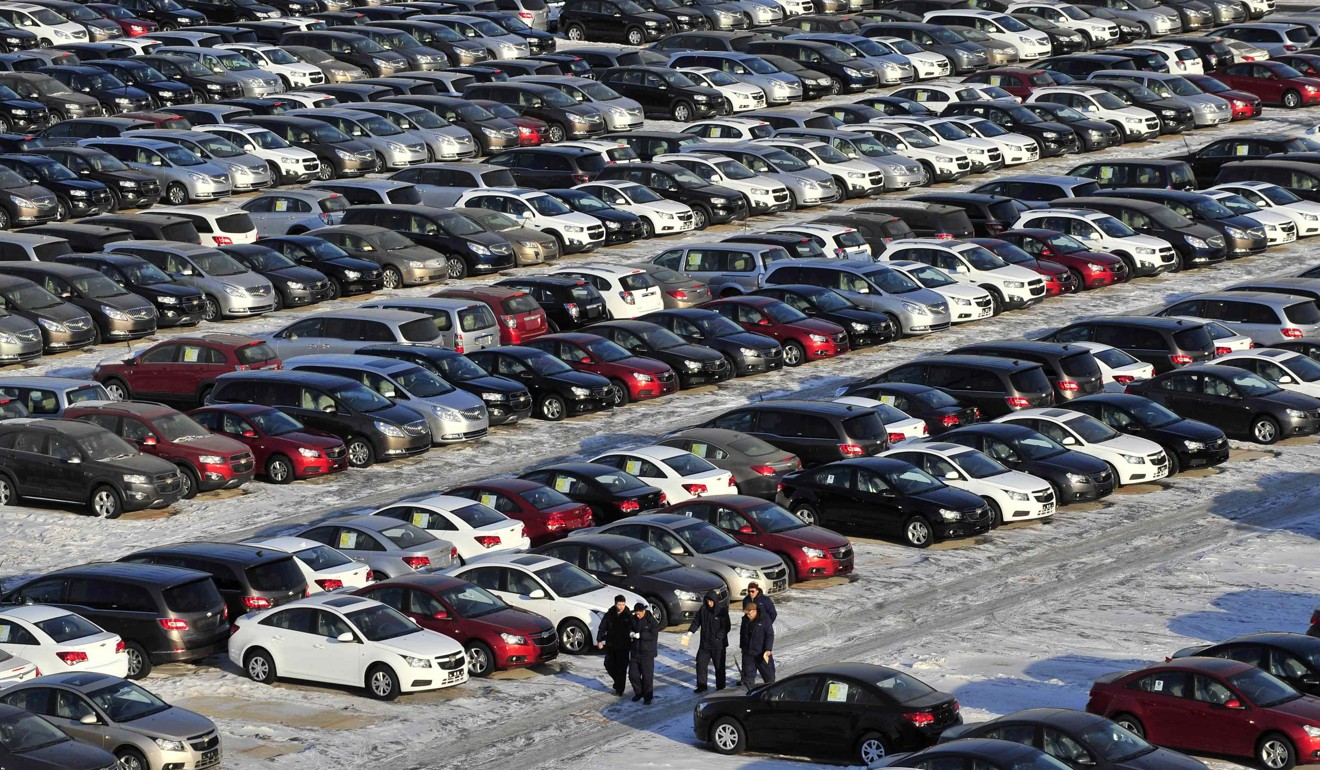
Chinese car stocks struggle as Beijing moves to fully open market to foreign companies
Credit Suisse and Jefferies slashes stock price targets of major players in anticipation of reduced bargaining power for local partners following policy changes
Chinese carmaker stocks took a broad beating on Wednesday in Hong Kong and Shanghai,with BAIC Motor and Brilliance Auto leading losses, after China announced plans to fully open up the market to foreign ventures over the next five years, a move seen as easing trade tensions with the US.
On the Hong Kong stock exchange, BAIC Motor dived 10.2 per cent to close at HK$8.02, Brilliance China Automotive Holding plummeted 9.4 per cent to HK$12.90, and Guangzhou Automobile Group lost 10.7 per cent to HK$12.90. Dongfeng Motor Group fell 4 per cent to HK$8.27, Geely Automobile Holdings dropped 2.5 per cent to HK$21.85, while Great Wall Motors fell 1.1 per cent to HK$7.48.

In Shanghai, Guangzhou Auto’s A shares sank 8.4 per cent to end at 17.33 yuan. Huayu Automotive Systems and Zhengzhou Yutong Bus fell2.2 per cent and 3.9 per cent, trading at 22.03 yuan and 21.24 yuan respectively.
On Tuesday, the National Development and Reform Commission, China’s top economic planner, said it will phase out rules requiring foreign carmakers to partner with a local firm to set up a factory in China in the next five years. For electric-vehicle joint ventures (JV), foreign ownership caps will be scrapped within this year. Regulations concerning commercial vehicles and passenger vehicles will be removed by 2020 and 2022 respectively.
China imposed a foreign ownership cap of 50 per cent on car joint ventures in 1994 to protect domestic carmakers.
“The bargaining power of local partners [in China] will be reduced as a result of the policy changes,” said Patrick Yuan, an analyst for Jefferies.
Global car companies, however, are likely to be cautious in completely giving up local partnerships in the short term despite the new rules enabling them to have greater control over local JVs.
“Future partnership will be more interest-oriented,” Yuan said.
Foreign companies are more likely to turn to Chinese partners that can really contribute to their local businesses, such as new energy vehicle credit contribution and domestic market support.
Besides, foreign firms that have significant presence in China or high local profit margins may be more risk-averse in pulling out from local partnerships in the short term.
Based on these criteria, Yuan ranked SAIC Motor, which currently has JVs with Volkswagen and General Motor, as the one with the highest bargaining power among Chinese carmakers.
He also said Brilliance Auto, which has a JV with BMW, is the weakest and “may be squeezed out soon”.
Yuan maintained the “underperform” rating on Brilliance Auto. He cut the target prices for Dongfeng Motor and Guangzhou Auto to HK$10.5 and HK$18.5 respectively, down from HK$12.7 and HK$22.3.

Separately, Credit Suisse downgraded the ratings for BAIC and Brilliance Auto to “underperform” from “outperform”, saying Beijing’s latest policy change could shorten the life of existing car joint ventures and reduce their value.
The investment bank also reduced their target prices sharply, cutting BAIC’s price to HK$8.33 from HK$14, and Brilliance Auto’s to HK$13.3 from HK$24.5.
Morgan Stanley, however, maintained its “overweight”ratings on both BAIC and Brilliance Auto, saying the policy changes will have limited impact in the short term. The bank said foreign carmakers are still subject to negotiations with local partners to significantly increase their stakes in JVs and the potential stake increase will also need the approval of China’s regulators.

